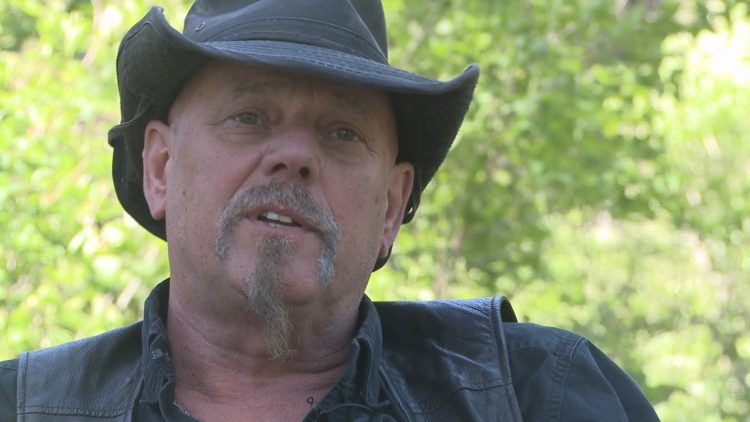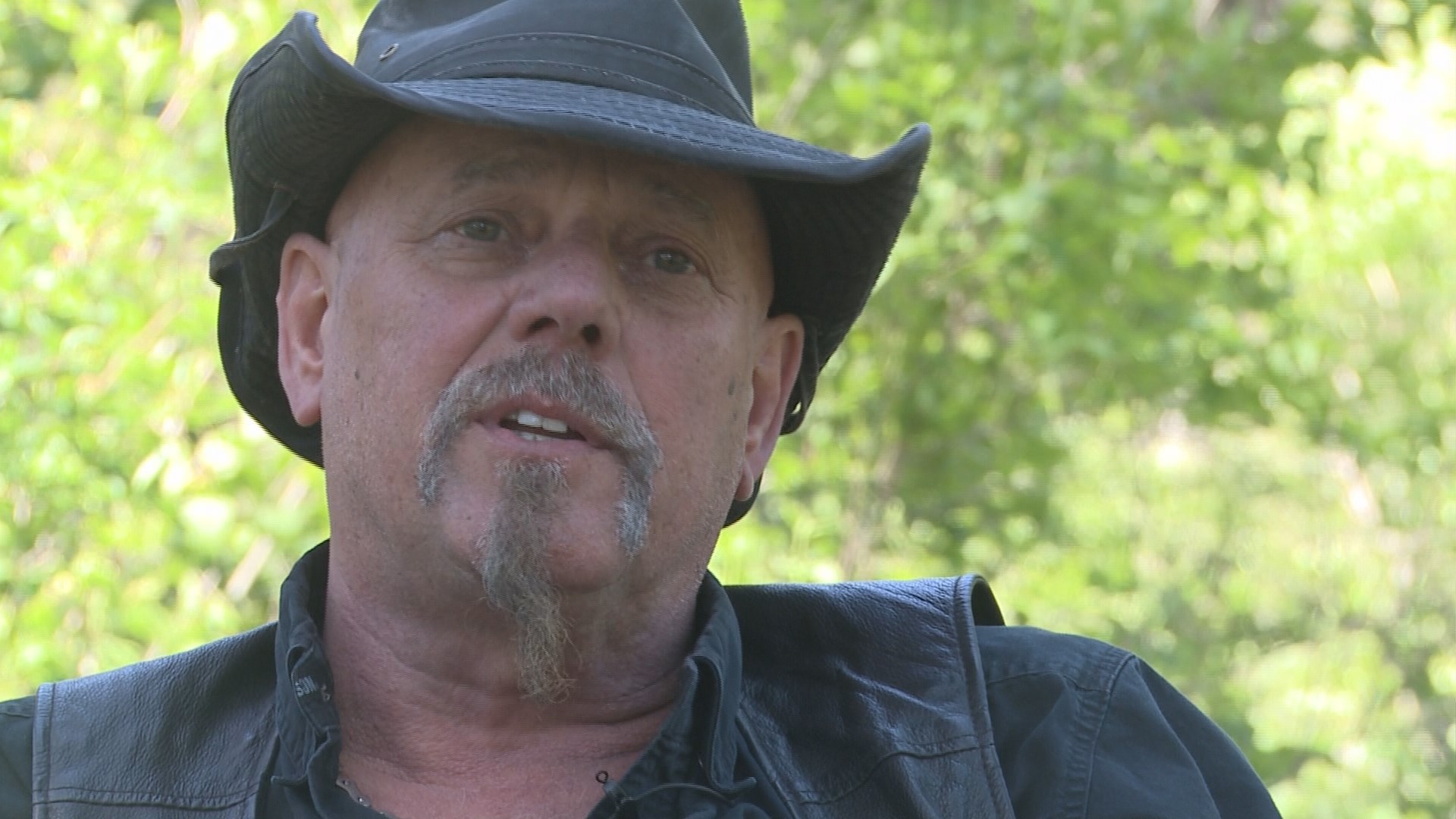
King 5 was emailed the threats of going Old West that Elected Official Joel Kretz made… yet they didnt ask him about them…..
The Washington Department of Fish and Wildlife is investigating the first livestock death blamed on wolves in this year’s grazing season.
It was found near the historic range of the Profanity Peak pack, which was monitored by a Washington State University researcher, who is now suing over free speech
A range rider found the dead calf in Ferry County near the Lambert Creek area Monday evening. It’s near the Profanity Peak pack’s range, the wolves killed last summer by WDFW after attacking 15 cattle – 10 confirmed and five probable attacks. A female and three pups survived. No one has confirmed what pack is responsible for the most recent death.
The lethal removal further divided the state over wolf management, as protesters rallied in Olympia and cattle ranchers received death threats in the northeast corner where the majority of wolves live.
“I love these cows and I don’t want to feed them to the wolves. I don’t want to see them tortured,” Kathy McKay said. “At least the locals, none of us need them, none of us want them. We’re fine without them. They’re killers. They’re vicious killers.”
McKay’s parents built the K Diamond K Ranch in 1961. Life was good, she said, until wolves migrated back to Washington after nearly a century of being gone.
The Profanity Peak pack killed 30 times more cattle than the majority of wolf packs studied by WSU carnivore expert Dr. Rob Wielgus.
“In particular we noticed that the Profanity Peak pack last year had completely switched to livestock. They were killing a lot of livestock in that particular location,” he said.
Wielgus monitored the pack last year. He found salt licks were attracting cattle near the den site, aggravating the problem. His wildlife camera video of the Colville National Forest shows cattle and wolves crossing paths.
During the study, Wielgus followed wolves and cattle to track wolf depredations, the term used to refer to injuries or deaths attributed to wolves. He found that 99 percent of ranchers in wolf occupied areas in Washington lose one out of a thousand cattle to wolves. The rancher who lost cattle to the Profanity Peak pack had a 3 percent loss rate – 30 times what Wielgus observed.
WDFW authorized the lethal removal of the pack on August 5. The salt blocks were removed August 8, according to WDFW. Wielgus knew about the salt blocks June 27.
“The livestock were still on the den site. We got video monitoring of wolves trying to chase them away from the den site, but the livestock kept returning because of the salt blocks. Then the livestock started being killed by the wolves,” Wielgus said.
Bill McIrvin, the rancher whose cattle were killed in the incidents, was also at the center of controversy over the lethal removal of the Wedge pack in 2014 after losing cattle.
“Last year, during a period of repeated wolf depredations to livestock by the Profanity Peak wolf pack, the Department became aware that the wolf rendezvous site overlapped with part of the normal grazing path, where livestock were concentrated with the use of salt blocks. Once that overlap was detected, the Department contacted the producer, who removed the salt blocks from the area on August 8. Some livestock continued to use the general area where the salt was, so the producer (and family members, staff, and range rider) increased human presence around the livestock to check on and move livestock as needed,” WDFW Wolf Lead Donny Martorello wrote in a statement.
KING 5 also asked WDFW about steps McIrvin took to prevent conflict.
“For Producer #1, the proactive deterrence measures were 1) turned out calves at weights generally over 200 lbs., 2) met expectation for sanitation, and 3) cows birthed calves outside of occupied wolf territories. Also, after the first wolf depredation, the producers agreed to the use of regular human presence (a reactive deterrence measure) for the remainder of the grazing season. This was accomplished by hiring two additional ranch staff, using a range rider, and increasing presence on the grazing site by the producer and family members,” Martorello said.
Wielgus reports the den site was common knowledge. When Wielgus told the Seattle Times what he knew last summer, he couldn’t believe the response.
“I was labeled a liar and a fraud. I was told by my superiors not to talk to the press so I could not tell the full story,” he said.
Rep. Joel Kretz, R-Wauconda, argued that ranchers used the same land as years past and didn’t know they’d put salt near wolves.
“When they salted they had no idea a rendezvous site had moved in. They put it on the same bench they’d put it for 45 damn years. It’s the same place. It’s part of the rotation through the grazing season. You keep your cows moving,” he said.
Martorello said the state is aware of Wielgus’ video.
“The Department has seen the video, reportedly made during the conflict with the Profanity Peak pack in 2016. We were made aware of it by WSU graduate students operating the trail cameras. It did not change Department’s assessment of the situation. The majority of the known wolf packs in Washington overlap livestock, and many overlap active grazing allotments. That is one result of wolves recolonizing of Washington state. However, the fact that livestock and wolves overlap and actively use the same landscape doesn’t necessary mean there will be conflict. In fact, experience in Washington and other western states shows that wolves and livestock coexist without conflict about 80 percent of the time,” Martorello said.
For Kretz, Wielgus did more harm than good, further dividing the state over wolf management.
“We all got tired of the death threats. That’s not the way for a scientist to be operating, I don’t think,” he said.
Kretz told WSU he thinks Wielgus’ science is driven by agenda. WSU reviewed the research but that resulted in no evidence of misconduct. Still, Wielgus believes his job is hanging by a thread.
“I was publicly discredited and defamed by the university. The university said I had lied. I did not lie. I simply reported the facts,” he said.
Wielgus plans to sue for six years salary and then leave his teaching position.
At the same time, he’s publishing research he calls one of the most in-depth wolf studies ever. He found wolf attacks on livestock are extremely uncommon, and that the more humans kill wolves, the more wolves kill cattle the following year. Depredations, he says, typically follow lethal removal of wolves due to disarray in the social dynamics of the apex predators.
“My agenda is scientific truth, and that’s what’s gotten me in trouble in this case. I could’ve just shut up,” Wielgus said.
For Wielgus, the answer is simple: keep cows away from wolf dens. He believes many ranchers are working hard to live beside wolves, but are too afraid to speak out in areas where animosity toward the carnivores continues to mount.
“It’s all about the encounter probability. Predators respond to prey on how frequently they encounter them,” he said.
For Kretz, wolf management isn’t so clear. He’s furious that WDFW did not respond fast enough to the calf found dead Monday. It was called in around 6 p.m., he says, and WDFW responded that there were no conflict specialists available to investigate until Tuesday morning.
“The first incident of the year they can’t get somebody there?” he said. “We can’t trust them to have their act together.”
Kretz worried the evidence would deteriorate, making it more difficult to confirm it as a wolf kill.
“They’re not going to work 24-7. That’s impossible to expect from them,” said Western Wildlife Conservation Director Hank Siepp. “We’re trying to educate people that we have a new critter on the landscape and there will be challenges.”
Washington State University sent a letter to Kretz in regards to his concern over Wielgus. It included the following findings:
“Discussion of the data set and its analysis is continuing among Professor Wielgus, Professor Dasgupta, and other WSU researchers. The University believes the best path forward is continued analysis and discussion of the data within the research community, culminating in submission of articles to scientific journals as appropriate. There is no evidence of research misconduct in this matter. Accordingly, the University has not opened a research misconduct investigation.”
Source: Wolf researcher plans to sue WSU over free speech | KING5.com

Comments
Dr. Wielgus’ observations and research have for a couple decades been of extreme value to researchers and wildlife managers planning to understand wolves and other predators.
The unfortunate truth, though, seems to be that special interests do not wish either the general public to, nor will themselves, learn inn the least.
it seems that the public tends only too often to attempt to attack and destroy every individual who might be perceived as standing in the way of complete control of the earth and all its living organisms, in the service of private or ingroup cash.
WSU Administration members who, instead of exploring the science, attempt to quash or punish scientists, do not serve a University.
Wielgus had long been a part of those who sought solutions that would allow euroamerican coexistence with the native wolf. He often emphasized that his job was in service to the agricultural community. His public statements, as you see, never diverged from performing that job, identifying practices that reduced conflict or predation on domestic food animals.